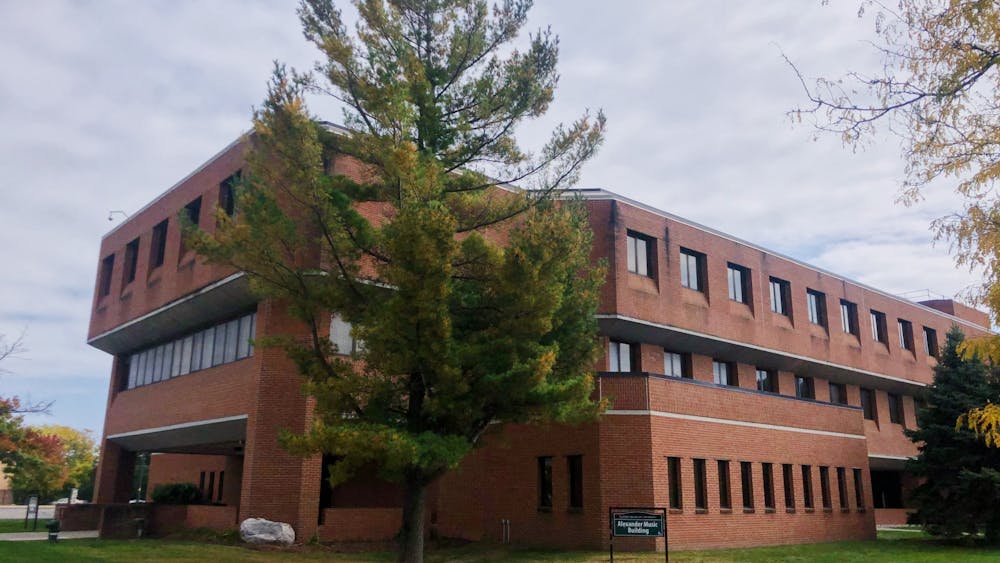Liz Hornyak: On this week’s episode, Eastern Michigan University alumnus Eric Sturgis has decided to run against Lisa Disch as a write-in candidate for City Council in Ann Arbor’s 1st Ward, Dr. Ashley Johnson Bavery writes a book about early immigration, and Ypsilanti City Council struggles to meet as Michigan’s Supreme Court rules that Gov. Whitmer’s executive orders were unconstitutional. I am your host Liz Hornyak and this is the Eastern Echo Podcast.
EMU alumnus Eric Sturgis has decided to run against Lisa Disch for City Council in Ann Arbor’s 1st Ward. Sturgis received his Bachelor of Arts in History from Eastern with a minor in Political Science. He is currently pursuing a Master’s of Science in Sports management at Eastern. If elected, Sturgis plans to focus on affordable housing, the Gelman Plume Consent Judgement, and Nonpartisan elections.
The Gelman Plume Consent Judgement was proposed in Aug. as a way to clean up the polluted groundwater. Gelman Sciences would dump the polluted ground water into First Sister Lake with some regulations. Sturgis instead wants to advocate for the Environment Protection Agency (EPA) Superfund. The superfund allows the EPA to clean contaminated sites and force the party responsible to either help clean, or reimburse the government for the EPA-led effort.
If elected, Sturgis also intends to look into acquiring the Brewer Lot, located on 1680 Dhu Varren Rd. He sees the lot as potential for affordable housing. He believes there is a great lack of affordable housing in Ann Arbor’s First Ward, and sees City Council’s settlement of the Barton Green Development lawsuit as a missed opportunity to build affordable housing.
Sturgis also disagrees with the primary system that decides who will be on the November ballot, and believes nonpartisan elections are the best way to hear the voices of those in the First Ward.
Eric Sturgis: The fact that we decide our City Councilperson in [the] August [Primary] where [3,0000] to 4,000 people vote in a ward with 20,000 plus people, that to me is not democracy.
Liz Hornyak: Since Sturgis is a write-in candidate, to vote for him on Nov. 3, voters must mark the ballot next to one of the blank spaces. To find out more information about Eric Sturgis you can go to https://www.ericsturgis.com/.
Ypsilanti City Council struggles to figure out how they will meet after Michigan’s Supreme Court voted 4 to 3 to end Gov. Whitmer’s ability to extend her emergency powers without approval from Michgan’s legislature. Ypsilanti’s City Council met on Oct. 6 to discuss how they will continue to hold meetings. Ypsilanti’s City Attorney John Barr explained that if Ypsilanti’s City Council continues to meet virtually, they could be violating the Open Meetings Act.
The Open Meetings Act was established in 1977 and requires that all public meetings be open to the public. Violators may be found guilty of a misdemeanor, and the Ypsilanti City Council could be charged a $500 fine.
The next City Council meeting is Tuesday, Oct. 20, and the City Council is considering a hybrid meeting. A hybrid meeting would allow for a small live audience, and everyone else would be able to watch the meeting virtually.
That was EMU history professor Dr. Ashley Johnson Bavery, who has written a new book called “Bootlegged Aliens: Politics and Policy on America’s Northern Border”.
Dr. Bavery said, “I went to the National Archives and noticed that there were all of these entries for illegal immigrants coming across the northern border, particularly through Detroit. Detroit was the number one place for undocumented immigration in the 1920’s so I thought I’d pursue that further.”
Her book tells the story of 20th century immigrants - many of whom came from Windsor Canada, and came to America through Detroit. The book also delves into how this immigration of European immigrants has affected America’s immigration policy. Dr. Bavery has been working on this book for ten years. Her book was featured in the Journal of Urban History, Labour/Le Travail, and the Reviews in American History. Dr. Bravery attributes her inspiration for this book to the National Archives in Washington D.C.
EMU’s music ensembles have adapted amidst the coronavirus pandemic. Here’s how:
The Jazz ensemble practices in thirty-five minute intervals with twenty minute breaks to air out the rehearsal space. During practice, students are required to be socially distanced and wear masks, some of which have special openings to allow the instrument to be played.
Professor Donald Babcock, who serves as the director of Jazz Ensemble, said he has seen some positives during these unusual times.
Donald Babcock: I would say a majority of students are coming to class prepared, and more so than they used to be, which is a neat surprise. I feel like when we are together in our limited times we are actually more productive because people are coming better prepared with the time that they are finding otherwise not being in class or commuting.
Liz Hornyak: The Jazz ensemble’s first virtual concert is Oct. 20, and their second concert will also be virtual and will be on Dec. 8.
For percussion students, only four students are allowed to practice for each piece. The percussion ensemble practices for forty-five minutes, wears masks, and is socially distanced. Percussion students are also required to practice two hours a day outside of scheduled rehearsals.
Percussion professor John Dorsey has been encouraging his students to follow safety guidelines both in and out of the classroom.
John Dorsey: Because we’re back meeting in person, it is not as radically different as many other classes are. I have been encouraging all my students that I see to practice safety protocols, not only here on campus, but off-campus as well so they don’t bring anything to campus and we can continue to do this. I think they know that we are fortunate to be meeting in person and that if any of them do anything stupid and they bring this on campus they can ruin it for everyone, so I try to remind them of that on a regular basis.
Liz Hornyak: The percussion ensemble’s first concert will be live streamed from Pease Auditorium on Dec. 1.
EMU’s orchestra meets in two groups of ten students. Each rehearsal for both groups is forty minutes, and students are also required to wear masks and be socially distanced. Each group disinfects equipment after use and allows a twenty-five minute period to let the rehearsal space air out.
For the orchestra, a date for their first concert hasn’t been announced, but will most likely be streamed through Vimeo. For information about EMU’s music ensembles you can go the School of Music and Dance event page.
Reported: Cameryn Eberly, Juliana Lumaj, Will Philips, Gracie Thompson
Scripted: Ronia Cabansag, Jasmine Boyd
Hosted: Liz Hornyak
Produced: Ashlee Buhler, Lauren Smith











